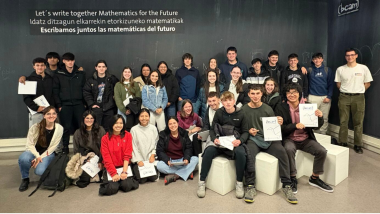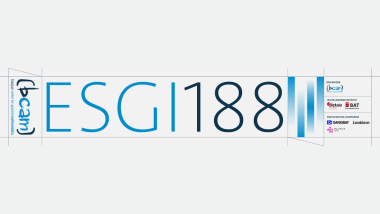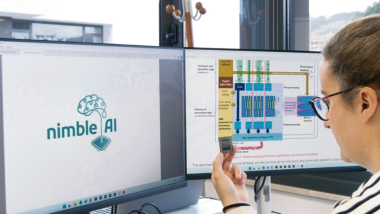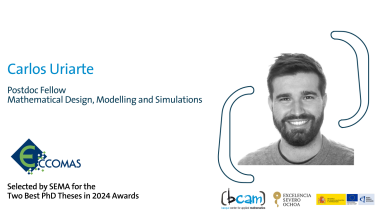Evan Cresswell-Clay awarded Fulbright grant for postdoctoral studies at BCAM
- The Fulbright program is an international educational exchange program sponsored by the U.S. government, which is intended to build lasting connections with the people of other countries. Recipients are selected based on academic and professional achievement as well as leadership potential.
Evan Cresswell-Clay has received one of the two grants that the Scholarship Board awards to early-career scholars to carry out postdoctoral studies in Spain. He is joining the Basque Center for Applied Mathematics to collaborate with Dr. Maurizio De Pittà, a renowned expert in the modeling of neuron-glial interactions in the brain.
Dr. Cresswell-Clay holds a Bachelor's degree in Applied Mathematics from the University of Pittsburg and obtained a Ph.D. in Scientific Computing at Florida State University in 2018.
What motivated you to apply for this scholarship at BCAM?
I was motivated to apply for a Fulbright scholarship to BCAM for several reasons. Firstly, I really wanted to work with Dr. De Pittà since his glial calcium signaling models have been at the core of my doctoral work. Besides, I relished the opportunity to work at BCAM. There is exciting research carried out at your Institute on the way information is represented in the brain. In this regard, I feel that I can leverage my research agenda within BCAM's research culture. As a result, the Fulbright scholarship seemed like a natural fit.
What does being awarded this grant mean to you?
As a young scientist, I am honored by the award of a Fulbright Fellowship. For me, it is a unique opportunity to learn about the Basque, Spanish and European cultures, academically and beyond. I will work with premiere researchers in my field at a research institute that I admire. I also look forward to the opportunity to experience life in Europe, especially in a country where I have always wanted to live. This scholarship is about building relationships between the U.S. and international academic institutions. In this way, I look forward to the opportunity to help foster a connection between the exciting research being done at BCAM and several institutions working in Computational Neuroscience in the U.S. A Fulbright scholarship and the prospect of working at BCAM with Dr. De Pittà is a tremendous opportunity.
What is the project you will carry out about?
I will work on the pattern formation of intracellular calcium gradients in glial cells. These cells are as numerous as neurons in our brains and use calcium ions to modulate their interactions with neurons in the healthy and diseased brain. It is observed experimentally that the patterns of these gradients within individual cells and in glia networks throughout the brain change with pathologies such as Alzheimer's or epilepsy, for example. My project aims to deploy machine learning in parallel with sophisticated biophysical models to build a library of glial calcium patterns that could be ultimately valuable in the diagnosis and treatment of such pathologies.
How will you collaborate with Dr. Maurizio de Pitta?
Dr. De Pittà will help me model large databases to develop functional templates of glial calcium signals in association with astroglial cells' complex branching anatomy. The two of us are also collaborating with Dr. Erlebacher, a senior investigator at the Florida State University in Tallahassee (F.L., U.S.) and will lend his expertise to develop the computational framework of the model in parallel computing architectures.
Related news
About the center
About the center




